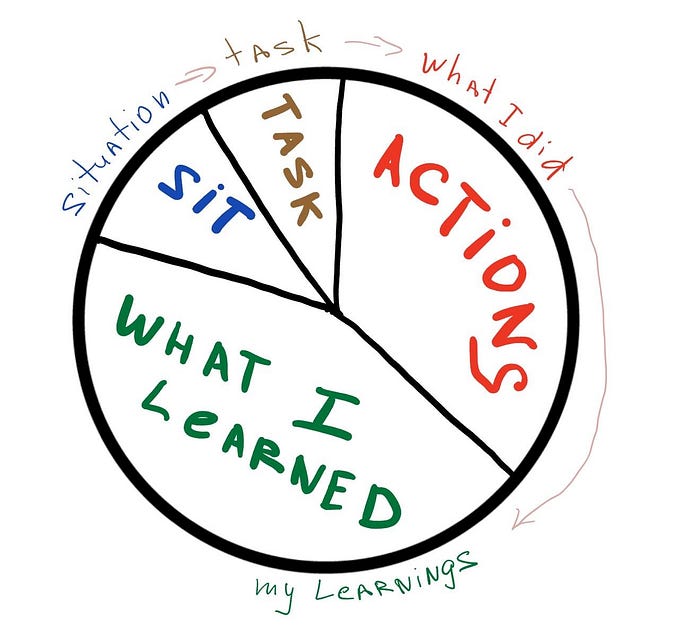7 years at Facebook

I started working at Facebook in 2012 and left in 2019. A lot happened in 7 years. The company grew from 3k to over 35K employees. I worked across a wide range of areas, including Ads, Growth, Marketplace, and Groups Monetization. I built 3 teams from scratch, had 3 kids, and moved 3 times. It was an amazing rollercoaster of a ride.
In that time, I was lucky to partner with some of the world’s smartest people on some of the most interesting and important problems. I came to work each day excited about the vast opportunity we had to impact people’s lives. And I was often filled with a sense of gratitude, pride, and community.
Since leaving Facebook one month ago, I’ve had time to reflect on what I learned and what I’d like to take with me to my next company.
1/ Openness is key.
Saying that Facebook is an open company is an understatement. Openness is a core part of how Facebook teams operate. All employees use Workplace (i.e., Facebook for work) to share updates and have discussions, and most teams have at least one group that is open to everyone. This enables teams across the company to connect the dots and learn from each other.
With more openness comes more information. Too much can be overwhelming, and new Facebook employees sometimes struggle to keep pace with the flood of updates and notifications that they receive. Still, the overall effect of such openness has been positive. It has boosted productivity across the company and empowered individuals to solve problems themselves.
Openness is also a key part of how employees communicate with Mark, Sheryl, and the rest of the executive team. When I left Facebook — 15 years after the company was first founded — Mark was still honest and down-to-earth at Q&As. Apart from some operational changes to accommodate our growing international presence, this weekly tradition has largely remained the same. Transparency at such scale is a rarity, and we’ve worked hard to preserve it.
2/ Operational principles are imperfect, but also invaluable tools for execution at scale.
Facebook runs on several operational principles. The most well-known used to be “move fast and break things.” This motto was controversial. Everyone wants to move fast, but breaking things just sounds bad.
As the company matured, we later clarified the meaning of this principle with a more measured version: “move fast and be bold.” This was an improvement, although there are still open questions. Does moving fast and being bold mean that we value innovation over quality? What about direction instead of velocity? Isn’t it more important to figure out where to move rather than to move somewhere quickly?
Fortunately, the dichotomies are false. One-line slogans — by their very simplicity — are unable to capture real-world nuance and complexity. We all agree that focusing on building the right things in a thoughtful way is important. We all agree that running around like a headless chicken should be avoided. The “move fast” principle doesn’t oppose this: it just defines the default path.
Having a default path enables teams to make decisions independently, without having to run everything past Mark. Most decisions are made easily and unanimously. For the less obvious ones, we might need to first gather data and research, then balance differing viewpoints. If the right decision still isn’t clear, we leverage our principles and choose the option that maps closest to “move fast and be bold.” Simple. Done.
Despite their shortcomings, operational principles are a positive force. They might seem one-sided. They might sound cheesy. But they are easy to remember and they help people move forward and unblock themselves, no matter how big the company gets.
3/ People join for a variety of reasons, but they stay for the culture.
Facebook hires people who are empathetic, humble, and eager to grow.
So what, you’re thinking. Every company wants employees with these qualities. Empathy is not a new concept, and there are countless articles hailing the “growth mindset.”
Here’s the difference. At Facebook, we don’t simply hire for these traits, we cultivate and reinforce them. Empathy comes more naturally when you see others around you practicing it each day. Individual growth is easier when people around you share what they’ve learned and encourage you. That’s exactly what we do at Facebook, both in our approach to building products and in our interactions with each other.
Facebook has enabled millions of communities (Groups) around the world. Inside the company, the same product powers hundreds of internal communities. There are parenting groups, running clubs, a (very popular) group for dog-owners, and dozens of interest groups. There are groups for people to discuss finances, home-buying advice, and cryptocurrency. People “give back” to their coworkers by sharing tips on everything from internal transfers to stroller recommendations. In addition, a large number of people share stories about their personal lives. Facebook’s open, supportive culture makes people feel safe in opening up about experiences like handling a poor performance review, surviving a miscarriage, switching genders, and other deeply personal stories.
New employees are often surprised at this level of openness and their coworkers’ willingness to share. This doesn’t happen at most companies. But at Facebook, people share because they feel that they and their coworkers benefit from it. The overwhelming response to personal posts is gratitude, appreciation, and support. We are continually reminded that we are not alone. That no matter what we are going through, there is someone else who can relate and help us through it.
Facebook is more than just a company for me — it is a community of people that I feel deeply connected to. People who supported me in my career and throughout all three pregnancies. People whom I’d mentored and proudly watched as their own careers took off. People who I went hiking with, ate dinner with, and invited to my kids’ birthday parties. For 7 years, they were my extended family.
What’s next?
Leaving Facebook was one of the hardest decisions I’ve made. But when you get offered a chance to work with amazing people to change an industry, you don’t say no. My next adventure is leading Product at Ironclad, and I’ll write more about why and how I joined in coming months.








